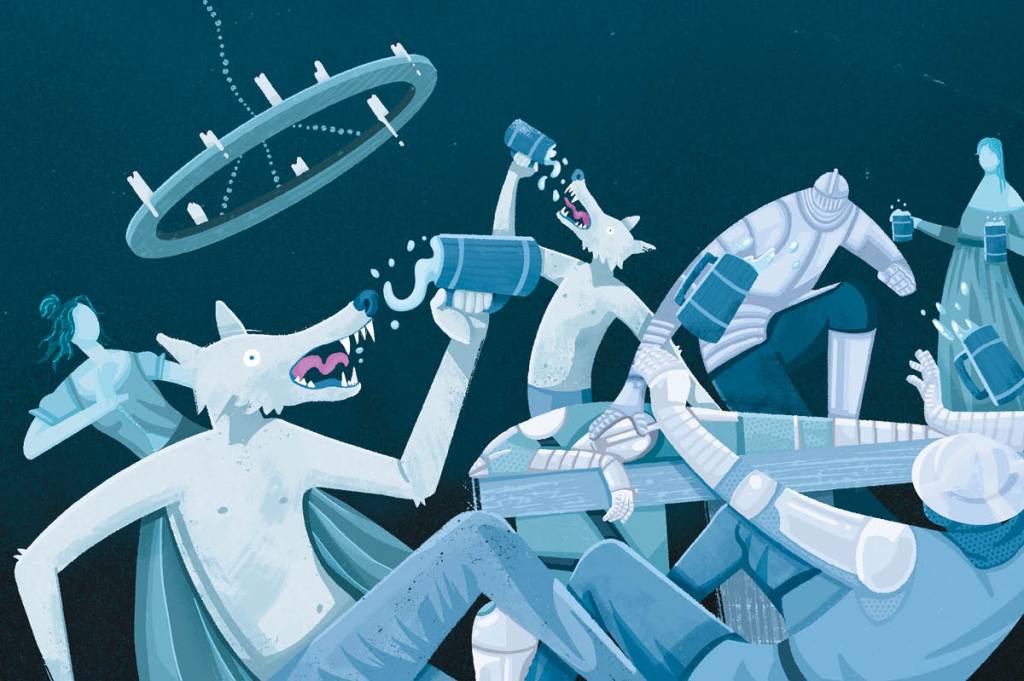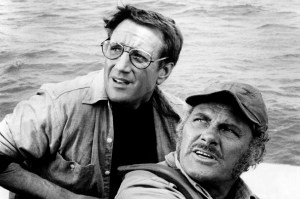Dan Jones’s Wolves of Winter follows from his first novel, Essex Dogs, which tracked the vicissitudes of the titular Dogs, a group of English blokes rampaging around France during the reign of King Edward III. Jones is a historian by trade, and so the setting and context are meticulously researched. If you want to know how to load an early form of cannon, you’ll find out here.
Peering into the past is a complicated business, especially far into the pre-modern era, although we do have lots of documentary evidence. It can be hard to remember that those knights and ladies were people just like us, with tempers, frailties and habits. It is the job of historical fiction to render these unknowable people in accessible terms, while it remains impossible to write a faithful account of any given period — our own preconceptions tend to creep in.
And so it is with Wolves of Winter, which, like Jones’s historical nonfiction, focuses on the brutality of those long past times, and yet has a contemporary feel, with influences as diverse as Bernard Cornwell and Game of Thrones (interestingly itself influenced by the historical Wars of the Roses: history and fiction melt into one another until they become indistinguishable). And Wolves of Winter is indeed a kind of fantasy.
The Essex Dogs, led by world-weary soldier Loveday FitzTalbot, are now at the siege of Calais, in the aftermath of the battle of Crécy in 1346: the English are besieging the French. Loveday’s crew includes a large Scotsman who likes nothing better than drinking and fighting, and a young boy called Romford who eats hallucinogenic drugs. Characters swear, piss and tug their pintles as if they were boozed-up laborers on a Saturday night — and that’s just the women. You almost expect them to pick a fight and then vomit on your shoes.
Jones confidently evokes the whorehouses, the illnesses, the death and depravity, the horrible smells of the public jakes and of burning flesh. His historical worldview is bleak. As in Adam Roberts’s The Black Prince, which told the story of Edward III’s glamorous son with an eye for the period’s gruesome detail, in Wolves of Winter the conventions of chivalry are a convenient lie to mask the true horrors of war. Remove the helmets and the fine language, and underneath are mewling and puking men out only for themselves.
Loveday does have a sense of loyalty, both to his ragtag crew and to his overlord. He has lost two of his crew members, and he’s in a bind: nobody will pay him the money he’s owed, and the obligation to pay shifts eventually to the Queen of England herself (“a duck with tits,” in one character’s memorable observation), which means it will be harder to obtain. Edward III is a distant figure; his noblemen are as cussed and hard-bitten as the Essex Dogs. Even the Black Prince, known to us as the flower of chivalry, is recast as a psychopath who has a homosexual dalliance with Romford. When the prince sees Romford in a brothel, he beats the boy’s head into the ground until he’s unconscious.
Despite viewing humanity as animalistic —man is very much a wolf to man here— nobody questions the social hierarchies: the Queen of England, along with other nobles, casts a spell over the rank and file, who muck in and get stuck in with a fart, a belch and a dogged stoicism.
Everybody in the novel is cynical; nobody can say anything without shoving in a “fuck” or a “cunt” or two, in dialogue aimed toward an eventual dankly lit television adaptation. On one page spread: “We’re in a fucking war. And a shite war at that.” “God save my arse and bollocks”; “Jesus Christ nailed to a fucking maypole”; “Christ’s whiskers.” And so forth. (I have made a list of the things that happen to Christ, should anyone wish to see it.) There is no room for God. Romford’s father was hurled “from the top of a tower by a mad bishop.” Jones does not hold back, as when a blokeish woman called Hircent desecrates a church in the foulest and profanest manner possible.
Loveday and Romford provide the backbone of the plot, when Loveday’s tender feelings for his charge lead him to send Romford back to England; the plan, however, goes wrong, ending in gore worthy of a butcher’s shop. Meanwhile, Loveday enters upon the attack on Calais with gusto. Jones’s writing is cinematic and vivid, bringing his readers right into the fray as Loveday teeters on a ladder, is missed by boiling oil and advances alone upon two men at arms.
Like Bernard Cornwell, Jones is dealing with male escapism, although where Cornwell offers us deskbound weaklings a vision of ourselves as musclebound warriors swiving and slaying with the best, Jones has us bound by fate and circumstance, simply striving for the next drink or the next whore. Get those beers down you, lads, we’ve got a fucking city to burn.
This article was originally published in The Spectator’s January 2024 World edition.






















Leave a Reply